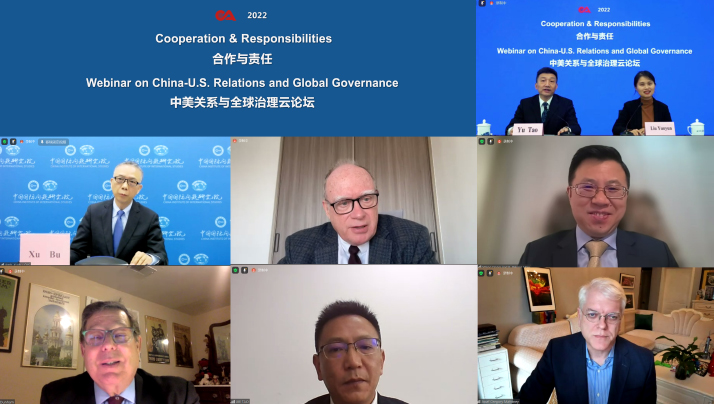Beijing: Fifty years ago when U.S. President Richard Nixon visited China, there was a greater gap between China and the U.S. than there is now. Yet the two countries still chose to break the ice with the issuance of the Shanghai Communiqué, which laid the foundation for the two countries to establish diplomatic ties and advance cooperation in a wide range of areas. “Nixon’s historic visit opened a door for China to re-engage with the world, and Chinese students, business people, scholars, technicians and scientists had the opportunity to travel to the U.S. and Western Europe and to learn from them. These men and women then came back and helped transform China into a modern and prosperous country,” Xie Tao, Dean of the School of International Relations and Diplomacy at Beijing Foreign Studies University, said a Webinar on China-U.S. relations and global governance on November 22.
Over the past 50 years, no two major countries have had closer contact or more interconnected interests than China and the U.S., Yu Tao, Vice President of China International Communications Group (CICG), told the participants from China and the U.S.
Hosted by CICG Americas, the event focused on the most concerning issues in bilateral relations at the moment, especially new trends following Chinese President Xi Jinping’s meeting with his U.S. counterpart, Joe Biden, in Bali, Indonesia, on November 14. “No one can deny the fact that the engagement between China and the U.S. has not only benefited China’s economy but provided lots of development opportunities for the U.S. And this is even more the case as the interests of two largest economies become more closely intertwined,” Xu Bu, President of the China Institute of International Studies, said. Musicians perform at a concert celebrating the 50th anniversary of the Shanghai Communiqué in Shanghai on February 28 (XINHUA)
A bump in bilateral ties
The situation worsened dramatically since the Donald Trump administration launched a trade war against China in 2018. Today, the bilateral relationship has arguably reached its lowest point since Nixon’s landmark visit 50 years ago.
David Blair, Vice President and senior economist at the Center for China and Globalization (CCG), stressed that it’s important for Chinese decision-makers and scholars to understand what drives decisions in Washington and also what drives the American people’s views of the world. He said understanding this can “help us make better predictions.”
–The Daily Mail-Beijing
Review news exchange item






